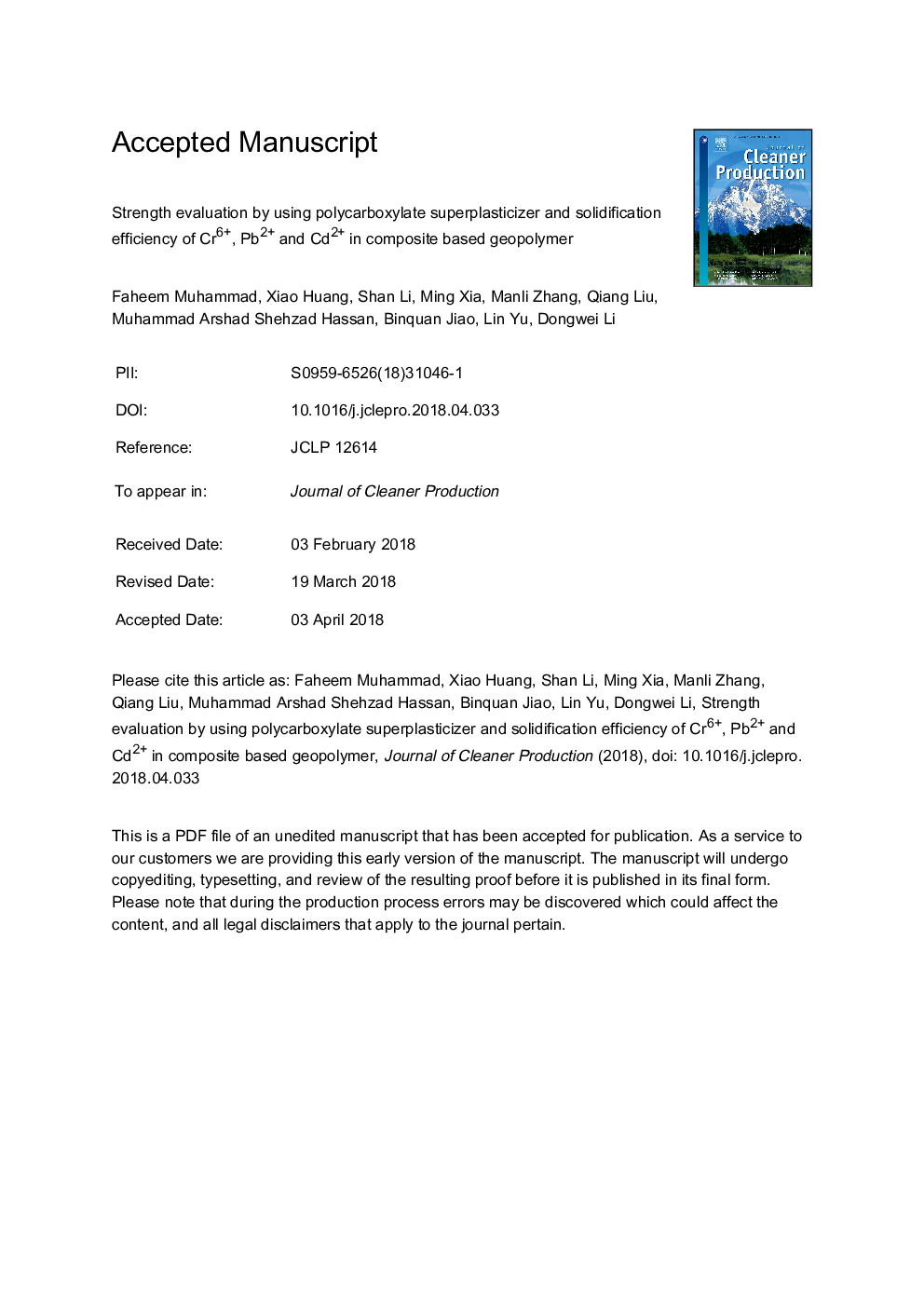| Article ID | Journal | Published Year | Pages | File Type |
|---|---|---|---|---|
| 8095652 | Journal of Cleaner Production | 2018 | 34 Pages |
Abstract
Nowadays immobilization of heavy metals is a great challenge. However, geopolymers are promising binders to deal with this problem. Composite based geopolymer was prepared by using Ground Granulated Blast Furnace Slag (GGBFS) and Fly Ash (FA) to evaluate the strength development and solidification efficiency of Chromium (Cr6+), Lead (Pb2+) and Cadmium (Cd2+). Different proportions of polycarboxylate superplasticizer along with alkali activators ratios (Na2SiO3: NaOH), water and temperature conditions were used to estimate the strength development. While, immobilization efficiency was determined by compressive strength and leaching behavior in two extractants i.e. deionized water and citric acid. Results depict that optimum concentration of superplasticizer had increased the compressive strength by reducing water demand after curing at high temperature (70â¯Â°C). Samples with highest compressive strength were used for solidification efficiency of heavy metals. Solidification efficiency was observed in range of 91-99.99%, which depends on leaching extractant, concentration and nature of metal. Nevertheless, higher leaching of heavy metals was observed in acidic medium due to its strong effect on composite based geopolymer. Scanning Electron Microscope (SEM), X-Ray Diffraction (XRD) and Fourier Transform Infrared Spectrometry (FTIR) results were indicate that all heavy metals in optimum concentrations had effectively immobilized in geopolymer structure by chemical and physical mean.
Related Topics
Physical Sciences and Engineering
Energy
Renewable Energy, Sustainability and the Environment
Authors
Faheem Muhammad, Xiao Huang, Shan Li, Ming Xia, Manli Zhang, Qiang Liu, Muhammad Arshad Shehzad Hassan, Binquan Jiao, Lin Yu, Dongwei Li,
